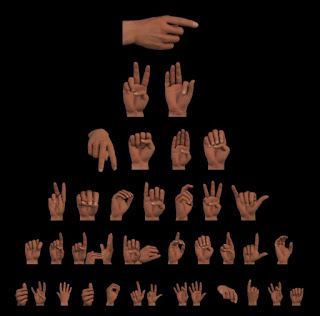 We know from extensive research that racism can cause significant harmful effects to the victim’s physical and mental health. In 2006, the American Psychiatric Association (APA) established a formal position against racism and discrimination, which partly states that the APA “recognizes that racism and racial discrimination adversely affect mental health by diminishing the victim’s self-image, confidence and optimal mental functioning…. APA believes that attempts should be made to eliminate racism and racial discrimination by fostering a respectful appreciation of multiculturalism and diversity.”
We know from extensive research that racism can cause significant harmful effects to the victim’s physical and mental health. In 2006, the American Psychiatric Association (APA) established a formal position against racism and discrimination, which partly states that the APA “recognizes that racism and racial discrimination adversely affect mental health by diminishing the victim’s self-image, confidence and optimal mental functioning…. APA believes that attempts should be made to eliminate racism and racial discrimination by fostering a respectful appreciation of multiculturalism and diversity.”However, racism—prejudice or discrimination directed against someone of a different race based on a belief that one’s own race is superior—is not a mental disorder (it is not included in APA’s diagnostic manual*).
Racism may not appear in the form of clear and obvious acts, it may be in the form of less obvious, “every day” racism. These acts, termed “microaggressions,” by psychiatrist Chester Pierce, M.D. in 1970, are subtle, often automatic, and nonverbal exchanges with negative overtones. Originally the concept referred to put-downs of blacks by whites in the post-Civil Rights era, but it has since evolved to include people with many differences.
These subtle and even unintentional acts, can none-the-less be harmful. The effects of this on children are especially pronounced. Victims of racism often display signs of physical and emotional stress. Some victims even start behaving in self-destructive ways that conform to the negative stereotypes they are facing.
 Even perceived discrimination can affect health and mental health in several ways, according to an analysis of more than 130 medical studies.** For example, the stress of ongoing perceived discrimination can lead to an increase in unhealthy behaviors, such as smoking or drinking, and decrease in healthy behaviors, such as exercising and healthy eating. If a person has a sense of hopelessness, and low self-esteem, they may be more likely to engage in risky behaviors.
Even perceived discrimination can affect health and mental health in several ways, according to an analysis of more than 130 medical studies.** For example, the stress of ongoing perceived discrimination can lead to an increase in unhealthy behaviors, such as smoking or drinking, and decrease in healthy behaviors, such as exercising and healthy eating. If a person has a sense of hopelessness, and low self-esteem, they may be more likely to engage in risky behaviors. So how can people protect themselves? Research suggests several ways to help protect yourself, including having a supportive network of friends and family you can talk to about problems; taking action to address a situation of discrimination, rather than ignoring or avoiding it; and having strong ties to the group(s) with which you identify.
We can all be more mindful of the existence and impact of even subtle and unintentional racism and racial discrimination in the lives of patients and their families and in their everyday practice.
Read more on the Microaggressions Project blog which provides many examples of everyday microaggressions from people across the country.
By Ranna Parekh, M.D.
Director, Division of Diversity and Health Equity\
American Psychiatric Association
References:
*American Psychiatric Association. (2013). Diagnostic and Statistical Manual of Mental Disorders (5th ed.) 2013. Washington, DC: Author.
**Pascoe EA, Richman LS. (2009). Perceived Discrimination and Health: A Meta-Analytic Review. Pscyhol Bull; 135(4):531-554.



























